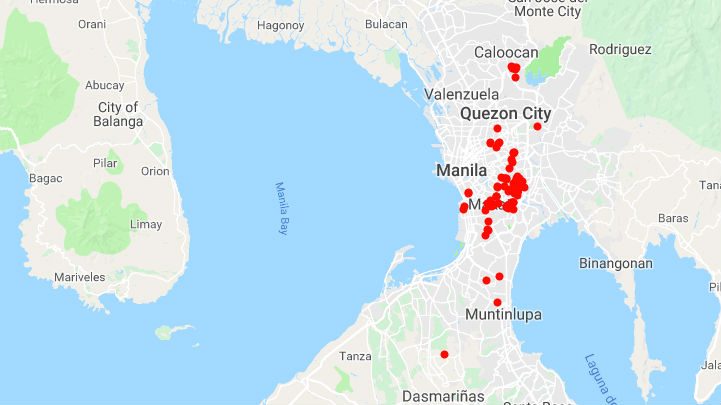SUMMARY
This is AI generated summarization, which may have errors. For context, always refer to the full article.

MANILA, Philippines – An Associated Press report exposed a sneaky Google practice where the search giant continues to collect a user’s location data even if the user has turned off the “Location History” setting on their mobile device.
The data privacy issue affects both iOS and Android platforms, the two biggest smartphone operating systems in the world, with the latter having around two billion users.
The issue roots from Google’s “Location History” setting, which can be turned on and off depending on the user’s preference. By its name, it may seem to be the switch that gives users the power to tell Google to completely stop tracking their location.
But it appears that it doesn’t work that way. Turning off the setting only stops Google from collecting location data that it uses to build a timeline of where a user has been, which a user can access and see through this Google link.
Now, even with the setting turned off, Google is able to collect location data via other Google apps and services such as Google Maps, Search, and weather updates. Open Google Maps or perform a search, and Google takes a snapshot of your location, including the time. Google still tracks the user, who, at this point, believes they have already turned off location tracking.
Granted, Google explicitly asks for permission to have location tracking turned on for an app if needed. But having a setting that’s labeled “Location History” could be problematic as it could be perceived as a universal switch to turn off tracking.
A Princeton University computer scientist, Jonathan Mayer, disapproves of the current setup.
“If you’re going to allow users to turn off something called ‘Location History,’ then all the places where you maintain location history should be turned off,” Mayer told AP.
There is, however, a way to turn off the location snapshots taken by the other Google apps. It’s done through the “Web and App Activity” setting, which is enabled by default, and allows or disallows Google apps and websites from collecting and storing certain user information including location. Information generated by your activity on Google apps and websites can be accessed at myactivity.google.com. You can also delete your information via the same link.
Google, like Facebook, stands to profit from personal data. Their business is advertising-driven, and the more data they can collect and offer to advertisers, and the more specific their data is, the more money they potentially make. These practices are now facing stiff challenges after the Facebook debacle earlier in the year, which saw the social network gravely mishandle user data, leading to consequences of tremendous political impact.
Just a few months after the Facebook scandal, the European Union’s General Data Protection Regulation (GDPR) went into effect – landmark legislation that not only tightened companies’ use, collection, and commercial harnessing of personal data, but also boosted global awareness of data privacy matters.
The issue concerning Google’s location tracking settings is the latest in a continuing series of data privacy matters facing many tech companies, especially the titans of personal data, Google and Facebook. – Rappler.com
Add a comment
How does this make you feel?
There are no comments yet. Add your comment to start the conversation.